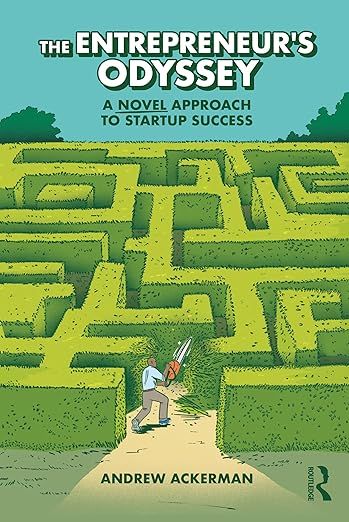Top 6+1 AI Courses for Beginners in 2025: Learn Artificial Intelligence Without Getting Overwhelmed

Now is the time to learn all about AI
Whether you’re a curious professional, student, or total tech novice, learning artificial intelligence doesn’t require a Ph.D. in computer science or decades of programming experience. Thanks to a wave of beginner-friendly courses designed by leading institutions and AI pioneers, getting started in AI has never been easier—or more accessible.
Below, we explore six of the most recommended AI courses for beginners, plus one bonus option for those ready to go deeper. These courses cater to a variety of learning styles, technical backgrounds, and career goals—so whether you’re looking to understand how AI will impact your job or you want to build models yourself, there’s something here for you.
🧠 1. Elements of AI – University of Helsinki
- Duration: ~6 weeks (self-paced)
- Topics: What AI is, basic machine learning concepts, neural networks, societal impact
- Best For: Absolute beginners, non-technical learners
- Pros: No coding required, available in 20+ languages
Overview
Created by the University of Helsinki in collaboration with Reaktor, Elements of AI is one of the most accessible entry points into artificial intelligence. It’s written in plain language, requires no programming experience, and balances practical understanding with big-picture thinking.
Why It’s Great
What sets this course apart is its global inclusivity—it’s been translated into dozens of languages, allowing non-native English speakers to grasp the material easily. It also includes interactive quizzes and real-world examples, making AI feel less intimidating.
Who Should Take It
This is the perfect starting point if you’re brand new to AI or want to understand the buzzwords without getting buried in code.
💻 2. Machine Learning – Stanford University (Andrew Ng, via Coursera)
- Duration: ~11 weeks (self-paced)
- Topics: Supervised & unsupervised learning, neural networks, SVMs, clustering
- Best For: Beginners with some math background
- Pros: Taught by Andrew Ng, one of the top minds in AI; foundational in the ML space
- Note: Free to audit (optional certificate fee)
Overview
This is the course that launched thousands of careers in data science and machine learning. Taught by Dr. Andrew Ng, co-founder of Coursera and former head of Google Brain, it covers the mathematical and theoretical underpinnings of machine learning.
Why It’s Great
It’s a gold standard in ML education—clear, structured, and highly respected by employers. While the course is technical, it’s designed for learners with high school-level math and includes intuitive explanations.
Who Should Take It
If you’re serious about building models or pursuing a technical AI role and you’re comfortable with linear algebra or calculus, this is the ideal foundation.
🎓 3. AI For Everyone – Andrew Ng (Coursera)
- Duration: ~4 weeks
- Topics: How AI works, real-world applications, ethics, how to lead AI projects
- Best For: Business professionals, managers, non-programmers
- Pros: No coding or math required, taught in plain language
Overview
This course strips AI down to what truly matters for non-technical professionals. It explains not just what AI is, but how it can be implemented in organizations—complete with business cases and strategy tips.
Why It’s Great
This is an essential crash course for executives, marketers, sales teams, product managers, or anyone interested in how AI is transforming the business landscape. Dr. Ng’s teaching style makes complex ideas understandable for everyone.
Who Should Take It
You want to harness AI in your organization or career without becoming a data scientist yourself.
👩💻 4. Google AI – Machine Learning Crash Course
- Duration: ~15 hours
- Topics: ML fundamentals, loss functions, overfitting, TensorFlow, case studies
- Best For: Learners with basic Python experience
- Pros: Hands-on coding exercises, interactive content
Overview
Built by Google’s AI team, this free crash course introduces key machine learning concepts using Python and TensorFlow. The platform combines short lessons with hands-on notebooks to help you build real intuition.
Why It’s Great
It’s ideal for people who learn by doing. Google’s real-world case studies—like detecting diabetic retinopathy or spam detection—show ML in action. Plus, the interactivity keeps you engaged.
Who Should Take It
If you know a bit of Python and want to build real models quickly, this is your on-ramp to hands-on ML development.
📊 5. Intro to Artificial Intelligence – Udacity
- Duration: ~4 months (at 6 hrs/week)
- Topics: Search, logic, probabilistic reasoning, Bayesian networks, ML, planning
- Best For: Motivated beginners ready for a deeper dive
- Pros: Project-based, Python-friendly, includes quizzes and exercises
Overview
This course, developed in part by Peter Norvig (a legend in AI and Director of Research at Google), provides a well-rounded introduction to AI concepts. It’s rigorous but not inaccessible, offering a solid blend of theory and code.
Why It’s Great
If you’ve done Elements of AI or Google’s ML crash course and want to go deeper, this course expands into AI problem-solving, including game playing, search algorithms, and logical planning.
Who Should Take It
If you’re looking for a bigger-picture understanding of AI and want something more than just machine learning, this is the bridge to advanced concepts.
📚 6. Harvard’s CS50’s Introduction to Artificial Intelligence with Python
- Duration: 7 weeks
- Topics: Search, knowledge representation, NLP, neural networks, game-playing AI
- Best For: Beginners with some Python knowledge
- Pros: Project-based, built on the famous CS50 platform
Overview
This is Harvard’s official AI intro course, and it builds on the prestige and structure of its renowned CS50 computer science curriculum. It’s hands-on, practical, and culminates in your ability to build mini AI programs.
Why It’s Great
It blends foundational CS concepts with real-world AI applications—from Tic Tac Toe bots to chatbots. The final project lets you build something of your own, which is valuable for portfolios.
Who Should Take It
If you want to learn AI and boost your Python skills while building real apps, this is your best bet.
📦 Bonus: Fast.ai – Practical Deep Learning for Coders (Part 1)
- Link: https://course.fast.ai/
- Requirement: Python experience recommended
- Best For: Beginners with programming experience seeking hands-on deep learning
- Pros: Practical, fast-paced, free, community-supported
Overview
Fast.ai is known for flipping the AI learning process upside down: instead of learning theory first, you jump into deep learning applications right away. You’ll use PyTorch to build powerful models within the first week.
Why It’s Great
This course is ideal for developers who want to get into the nuts and bolts of deep learning without slogging through months of math. The community is active and supportive, and many students go on to do impressive real-world work.
Who Should Take It
If you can write basic Python and want to train AI models today, Fast.ai gets you there faster than most traditional academic paths.
Final Thoughts
Artificial intelligence is no longer just a research niche—it’s now a vital part of the modern workplace, from logistics and customer service to marketing, law, and medicine. Whether you’re aiming to launch a career, lead AI initiatives, or simply understand the buzz, there’s a course on this list that fits your goals.
Start with what aligns with your current skills and interests, and don’t be afraid to mix and match. Many learners begin with Elements of AI or AI For Everyone, then progress to Google’s crash course or Fast.ai to build more technical skills.
Remember:
- You don’t have to learn everything at once.
- You do need to start somewhere—and the best time to start is now.
💡 Tip: Bookmark this article or share it with your team. AI literacy is the new digital literacy—make sure you’re not left behind.
Want help crafting your AI career or business strategy? Visit NinjaAI.com for AI-powered SEO, GEO (Generative Engine Optimization), and custom content solutions tailored to your industry.















